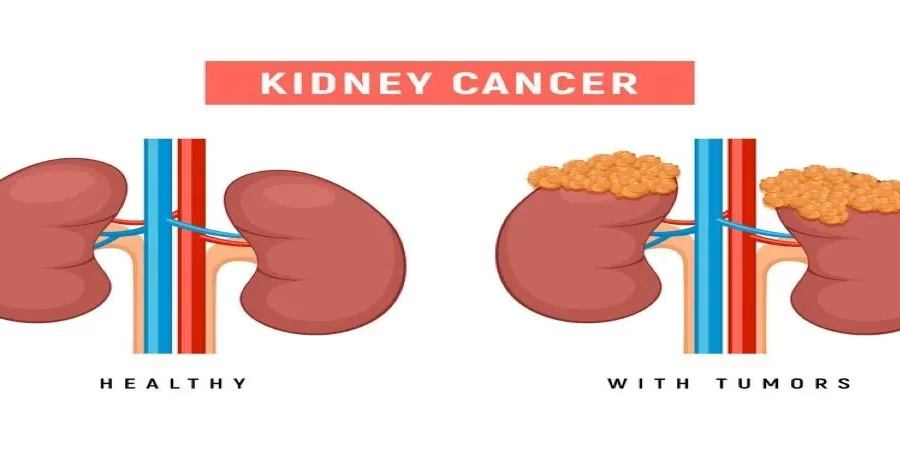Less than two percent of people are at risk for kidney cancer which is mainly detected at the later stage. It is so because early-stage kidney cancer does not produce noticeable symptoms.
Kidneys are situated deep inside our body, so it is impossible to see or feel the small tumor during the physical exam. Only when it has grown big or has advanced to other nearby organs or lymph nodes, do symptoms develop, which are often mistaken for other minor conditions.
Dr. Sandeep Nayak, a prominent surgical oncologist in India, says, “A large number of kidney cancer are discovered when doing a diagnostic or imaging test for some other ailment.”
He further explains that if you smoke, are obese, or have come in contact with chemicals like benzene and asbestos, your risk for kidney cancer increases. Sometimes, it can run in the families.
Talk to your doctor if you think you are at high risk, and keep a lookout for symptoms. Early detection and timely treatment are the best way to fight cancer.
Dr. Sandeep Nayak is one of the best oncologist in India, practicing at KIMS Hospital, Bangalore. Till date, he has treated thousands of patients from India and worldwide in his career spanning more than 15 years.
What are the symptoms you need to watch out for?
The most common and early sign of kidney cancer is blood in the urine, making the urine appear pink, orange, or dark red. Sometimes the traces of blood are too few to notice with the naked eye. It may show up in the urine test.
Please remember blood in the urine does not always mean kidney cancer. It can also happen due to kidney stones or infections.
As cancer progresses, other symptoms are noticeable, such as:
- Unexplained weight loss
- Persistent pain in the side or lower back
- Fatigue
- Fever
- Lump or mass in the side or lower back
- Anemia
- Night sweats
- Loss of appetite
- High blood pressure
- Swelling in the ankles or legs
- Feeling overall sick
The kidneys help with the metabolic and digestive processes of the body. Cancer could hamper its functions by affecting its ability to break down, absorb, and dispose of food.
Dr. Sandeep Nayak stresses that you should not ignore any of the above symptoms. It could be related to other less serious medical problems, but proper diagnoses are necessary. Being vigilant is essential. Early-stage diagnoses of kidney cancer offer a better outcome.
Which diagnostic tests and imaging can detect kidney cancer before the warning signs?
As mentioned earlier, kidney cancer is often discovered during imaging or laboratory tests for other conditions.
For example:
Blood traces that are not visible to the naked eye may be detected during a routine urine test.
Kidney cancer can be found during a CT scan which may show a growth in the kidney in the 3D images taken at different angles.
It may also show up during an MRI or an ultrasound of the kidney. If a dye is used, it can also differentiate between a cancer tumor and a noncancerous cyst.
What should you do if you have symptoms of kidney cancer?

If you notice any symptoms, you should discuss them with your doctor. He will perform a physical exam to check for a lump, and if need be, he may ask you to undergo a few tests.
Your doctor will refer you to a cancer specialist if he doubts you have kidney cancer.
To confirm the diagnosis, the oncologist may order some tests, including:
- Urine tests
- Blood tests
- Ultrasonography, CT scan, and MRI
- Biopsy
How to proceed forward?
If kidney cancer is detected, the cancer specialist will determine its stage and whether it has spread to other parts of the body. Dr. Sandeep Nayak, an experienced cancer specialist in Bangalore, states, “Staging is necessary as it helps us plan the right course of treatment for you.”
He further adds, “There are various treatments available to overcome kidney cancer and improve your long-term outlook. Medical science is making tremendous advancements in cancer treatments, and newer surgical modalities like robotics and laparoscopy are changing the way how surgery is performed.”
How is kidney cancer treated?
Your treatment will depend on many factors such as your age, overall health, the type of cancer you have, and its stage.
Surgery:
Surgery is the primary treatment for most kidney cancers. The surgical oncologist will try to remove the tumor while preserving the kidney.
There are many types of kidney surgeries, including:
- Laparoscopic nephron-sparing surgery (LNSS)
- Laparoscopic radical nephrectomy (LRN)
Chemotherapy:
Powerful drugs are administered either through pills or intravenously to slow or stop cancer growth.
Radiation therapy:
High-energy radiation is given to shrink the tumor or eliminate the cancer cells.
Targeted therapy:
Specific medications are given to block the blood vessels and proteins required by kidney cancer to grow.
Immunotherapy:
This treatment stimulates your immune system to fight the cancer cells and eliminate them.
Dr. Sandeep Nayak, one of the leading surgical oncologist in India, emphasizes the need to contact a doctor if you have any of the above symptoms to rule out any underlying cause and get timely treatment.



